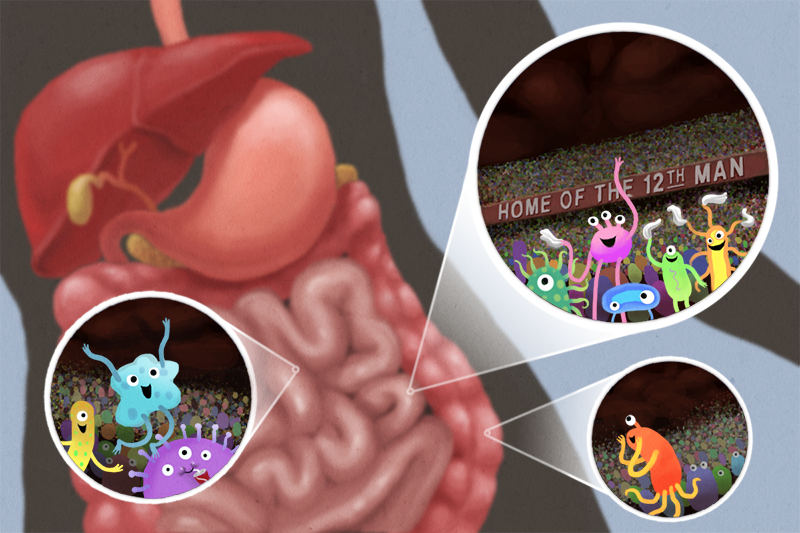12th Man of human health: Tapping into the secrets of our microbiota

Illustration: Division of Research
Until the late 20th century, science recognized 11 organ systems—the muscular, skeletal, circulatory, and respiratory systems are just a few. Each plays a role in keeping a living, breathing human body working smoothly, like player positions on a football team.
But recently, a new “organ system” has been taking the limelight, one which plays a surprising role in keeping us on our game, says a researcher at Texas A&M University.
This so-called twelfth organ system — the “12th Man of human health,” as Assistant Professor Robert C. Alaniz of the Texas A&M Health Science Center’s College of Medicine likes to call it — is the vast community of beneficial microbes, dubbed the “microbiota,” that live inside of our digestive tract and almost every other body region.
The microbiota can affect our susceptibility to everything from cancer and HIV to obesity and the common cold.
Working in partnership with Arul Jayaraman, a professor in Texas A&M’s Look College of Engineering, Alaniz has been studying compounds produced exclusively by gut bacteria which may act as next generation therapeutic compounds.
Once novel compounds are identified, Alaniz then investigates their functional and molecular effects on a number of distinct immune cells with critical roles in health and disease.
Alaniz has big plans for microbiota research at Texas A&M. “It’s the medicine cabinet in our own bodies,” Alaniz said. “If we can unlock its secrets, there’s no telling the implications for human health.”
#TAMUresearch

